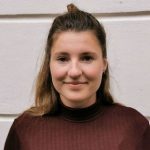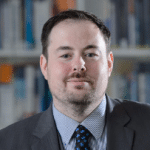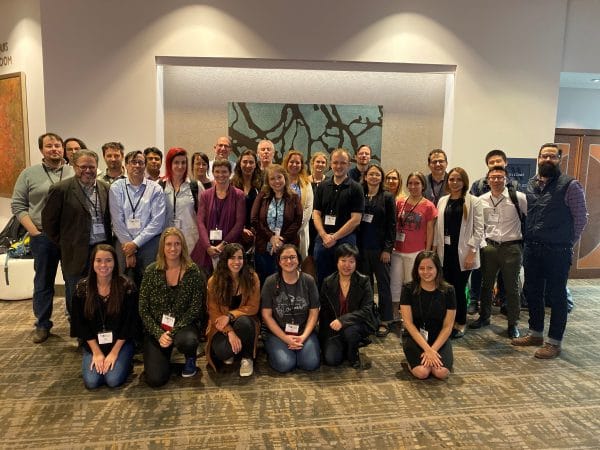OCD and TS Working Group Leadership





Work with us!
If you have questions regarding the PGC OCD/TS workgroup or projects that are currently being conducted, please contact the workgroup chairs.
The analytical core consists of the workgroup chairs and larger analytic groups for each disorder including several PIs and analysts that meet weekly. If you have questions about a specific analysis, please contact the core analytical group director(s).
For any questions or ideas related to research dissemination (e.g., via this webpage, social media, blogs, press outlets), please contact the workgroup outreach liaison.
If you have questions about how to access summary statistics or genotype-level data, or are interested to submit a secondary analysis proposal, please contact the workgroup data access committee representative.
About Us
Our History
The TS/OCD workgroup has been a part of the PGC since 2013. During that time, our membership has grown to include 225 investigators from 23 countries. Our group aims to understand the underlying causes of TS and OCD as well as their biological relationship with other disorders through large scale genome-wide studies.
Dr. Manuel Mattheisen from Wuerzburg University and Dr. Jeremiah Scharf from Massachusetts General Hospital co-chair the TS/OCD working group. Our interdisciplinary membership includes graduate and postdoctoral trainees as well as distinguished faculty in psychiatry, child psychiatry, neurology, psychology, biostatistics, genetics, and genetic epidemiology. Data currently included in the working group efforts are based on the work of several consortia and teams across the globe from North and South America, to Europe, Asia and Australia.
Our Motivation
- Expand our sample size to 85,000 cases for OCD and 25,000 cases for TS for additional genome-wide association and copy-number variant studies.
- Explore the genetic relationships between these disorders and other neuropsychiatric disorders.
- Study the genetic underpinnings of the tic and obsessive-compulsive phenotypic spectrum from dimensional traits in a population of healthy individuals to clinical representation.
- Investigate the full spectrum of genetic variation as underlying risk factors from SNPs, to CNVs, to rare variation.
Get Involved!
Currently, we are looking for new collaborators with genotyping and depression data in order to increase our sample size for our next large-scale genome-wide meta-analyses of OCD/TS.
If you are interested in learning more about the workgroup, please contact Manuel Mattheisen or Jeremiah Scharf.
If you would like to be a part of these efforts, please contact the respective representatives below:
Obsessive-Compulsive Symptoms
Treatment response working group
CNV working group
Publications
International Obsessive Compulsive Disorder Foundation Genetics Collaborative (IOCDF-GC) and OCD Collaborative Genetics Association Studies (OCGAS). (2018). Revealing the complex genetic architecture of obsessive-compulsive disorder using meta-analysis. Molecular Psychiatry. 23(5), 1181-1188. https://doi.org/10.1038/mp.2017.154
Yu D, Sul JH, Tsetsos F, ... Mathews CA, Scharf JM; Tourette Association of America International Consortium for Genetics, the Gilles de la Tourette GWAS Replication Initiative, the Tourette International Collaborative Genetics Study, and the Psychiatric Genomics Consortium Tourette Syndrome Working Group. (2019). Interrogating the Genetic Determinants of Tourette's Syndrome and Other Tic Disorders Through Genome-Wide Association Studies. American Journal of Psychiatry. 176(3), 217-227. https://doi.org/10.1176/appi.ajp.2018.18070857
Mufford M, Cheung J, Jahanshad N, van der Merwe C, Ding L, Groenewold N, Koen N, Chimusa ER, Dalvie S, Ramesar R, Knowles JA, Lochner C, Hibar DP, Paschou P, van den Heuvel OA, Medland SE, Scharf JM, Mathews CA, Thompson PM, Stein DJ; Psychiatric Genomics Consortium - Tourette Syndrome working group. (2019). Concordance of genetic variation that increases risk for tourette syndrome and that influences its underlying neurocircuitry. Translational Psychiatry. 9(1):120. https://doi.org/10.1038/s41398-019-0452-3
Khramtsova EA, Heldman R, Derks EM, Yu D; Tourette Syndrome/Obsessive-Compulsive Disorder Working Group of the Psychiatric Genomics Consortium, Davis LK, Stranger BE. (2019). Sex differences in the genetic architecture of obsessive-compulsive disorder. American Journal of Medical Genetics Part B: Neuropsychiatric Genetics. 180(6):351-364. https://doi.org/10.1002/ajmg.b.32687
Yilmaz Z, Halvorsen M, Bryois J, Yu D, Thornton LM, Zerwas S, Micali N, Moessner R, Burton CL, Zai G, Erdman L, Kas MJ, Arnold PD, Davis LK, Knowles JA, Breen G, Scharf JM, Nestadt G, Mathews CA, Bulik CM, Mattheisen M, Crowley JJ; Eating Disorders Working Group of the Psychiatric Genomics Consortium, Tourette Syndrome/Obsessive–Compulsive Disorder Working Group of the Psychiatric Genomics Consortium. (2018). Examination of the shared genetic basis of anorexia nervosa and obsessive-compulsive disorder. Moleculary Psychiatry, Aug 7 [epub ahead of print]. http://doi.org/10.1038/s41380-018-0115-4.






